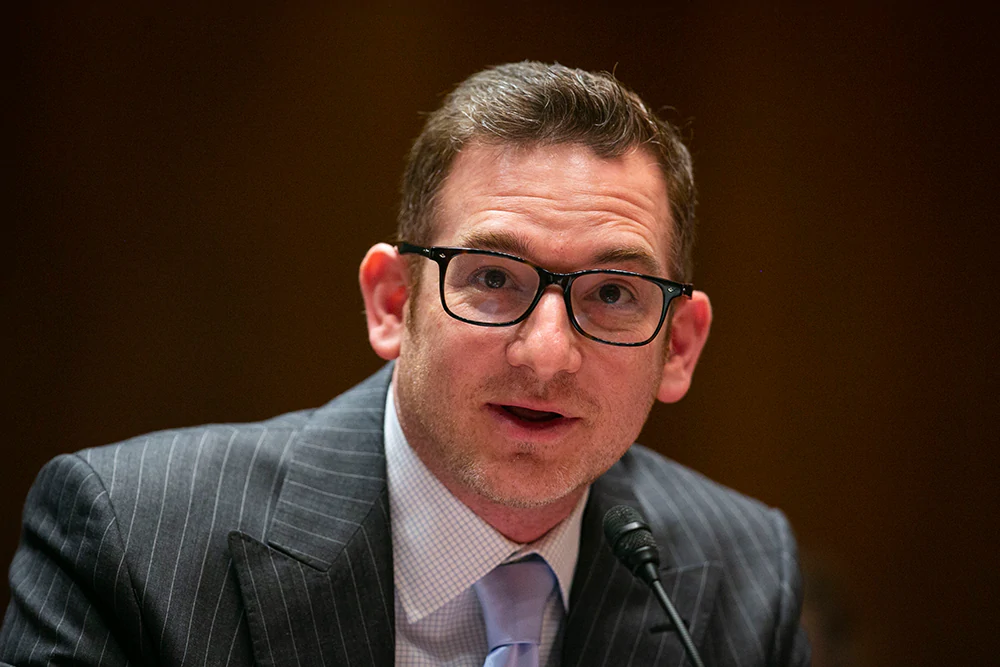Google dominates the internet, no question. Since it was founded, the company quickly captivates the market by introducing a new way for websites on the internet to be found.
Instead of using directories and such, Google allows websites to be indexable and searchable in one place, through keywords. All people need to do, is access Google.com, and start typing.
And as the web grows, Google grows with it.
Since then, Google is known for utilizing its huge resources to experiment on new products and abandon them later if they do no good, hamper rivals' growth by copying their core features, and partner with as many others as possible, in order to expand its reach beyond imaginable.
According to rivals, this creates a monopolistic environment, where Google sits comfortably at the top.
Gabriel Weinberg, the founder and CEO of DuckDuckGo, experienced this rivalry first hand, and he's clearly annoyed.

Weinberg testified that his company struggled to grow its market share because Google was paying key companies billions of dollars to keep its search engine as the default on computers or mobile devices.
DuckDuckGo, known for its privacy-centric search engine, had tried pitching its DuckDuckGo search engine to be the default in private browsing modes of other browsers.
But according to the CEO, Google has inked exclusive contracts with others, and this prevented others from accepting DuckDuckGo.
Then, according to Weinberg, DuckDuckGo boasts privacy, and doesn't follow users around using trackers.
DuckDuckGo’s own research found that many consumers aren’t aware that private browsing modes do not provide as much tracking protection as they would expect. Weinberg said the company presented that information to browser makers, showing that private browsing can mislead consumers, offering DuckDuckGo as a solution to that problem.
Instead of deploying trackers, DuckDuckGo claims that it goes against them, and it's also more open about how it uses personal information.
“People don’t like ads that follow them around," he said. DuckDuckGo’s internal surveys, he said, show privacy is the biggest concern among users, beating their desire for the best search results.
While DuckDuckGo does sell ads, but its ads are based on what users are asking the search engine in the moment, using a technique known as “contextual advertising.”
"We thought it was a great pitch to browsers, honestly," Weinberg said during questioning by an attorney for the U.S. Justice Department.
"We really took that pitch pretty far and wide," Weinberg said. Despite garnering interest, he said they “hit an obstacle” with companies’ contracts with Google.
In the end, DuckDuckGo decided that "it was a quixotic exercise," Weinberg said.
"Switching is way harder than it needs to be. There’s just too many steps."

Weinberg testified that getting users to switch from Google requires as many as 30 to 50 steps to change defaults on all their devices, whereas the process could be shortened to just one click on each device.
In other words, even when DuckDuckGo do get users, making them to switch from Google Search and Google Chrome, is extremely difficult.
DuckDuckGo was founded way back in 2008, but it only began attracting a significant amount of users after the Edward Snowden saga, which leaked government confidential data, which then raised awareness about the pervasiveness of online surveillance.
DuckDuckGo gained even more users after Facebook’s Cambridge Analytica scandal opened a window into how personal information extracted from digital services can be passed around to other data brokers.
But going further up is difficult, and growth has languished with a small market share, as consumers face difficulties switching from Google when the behemoth is the default option on computer screens.
Founded in 2008, DuckDuckGo is privately held, which means that it has no requirement to disclose its finances. However, it has said that it’s been profitable for several years and has brought in more than $100 million in annual revenue.
In comparison, Google conducts several billion searches daily, and that DuckDuckGo's revenue is loose change for Google’s parent company, Alphabet, which generated $283 billion in revenue in 2022.
Google is not stranger to allegations and antitrusts. But for more than many times, Google has been a slippery giant, and is known to either pay, delay, or make moves that raise more questions.
Weinberg is known for his straightforward, harsh comments towards Google. Before, he once said that Google deploys "dark patterns" to trick users into abandoning rival products.